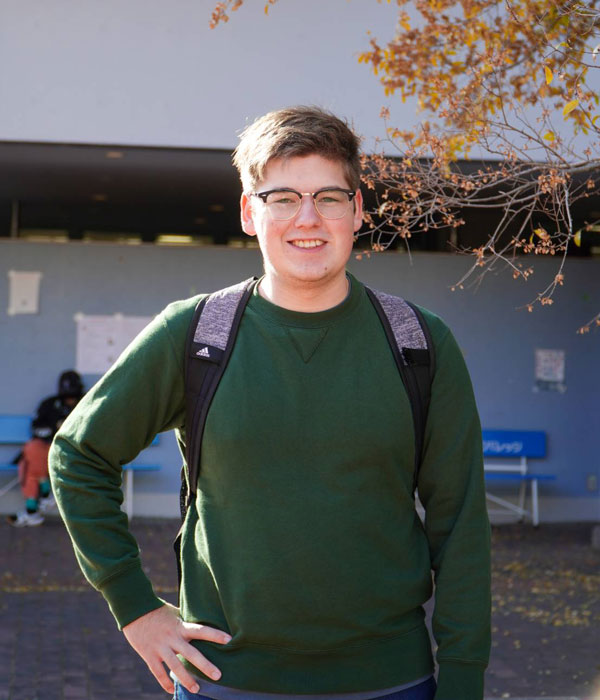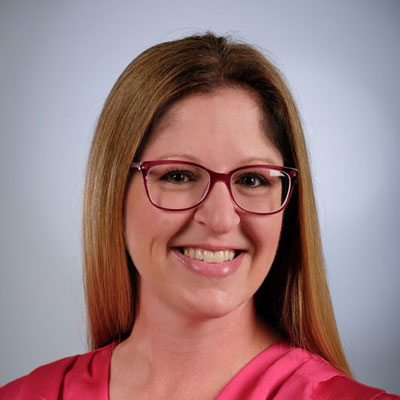Frequently Asked Questions
Studying abroad involves a lot of details. Makes sense—you're traveling to a different place. Even if you're in another country for four weeks or four months, you still have to figure out what to pack and what credits you'll earn and what documents you'll need. Find quick answers to questions you have. As always, if you still can't find what you're looking for, get in touch with us.
Planning Your Program
You might be unsure, but don't let that stop you from traveling! Check out common questions about studying abroad.
Q: How do I choose a program?
With almost 40 programs to choose from, it might be hard to determine what's right for you. Ask yourself these questions to help narrow your search:
- Which aspects of study abroad are most important? (Language immersion, program duration, housing, specific location, etc.)
- What subject areas do I want to study?
- Do I want to take classes in English or the language of the host country?
- Do I have specific General Education requirements to complete?
- What country or region of the world is most interesting to me?
- How long would my ideal program be? A semester? Year? Over an academic break?
- What year do I want to study abroad? (Freshman, Sophomore, Junior, Senior)
- How will I pay for my study abroad experience? Do I need financial aid?
Q: I'm a freshman. Is it too early to study abroad?
Nope! While semester programs require at least sophomore standing, we have several faculty-led travel courses or interim programs that are open to freshmen. Please see specific program web pages for eligibility details.
Q: Do I have to know (or speak) a foreign language?
Not at all! 80% of our programs do not have a foreign language requirement, but if you would like to use your study abroad experience as a way to improve your foreign language skills there are certainly opportunities for that as well.
Q: When are the deadlines for applying?
- Mid-September: International Student Teaching/Japan (spring semester)
- Early October: Winter interim Germany IWU & faculty- led travel courses, spring break travel courses, & spring semester programs
- Early March: most summer interim faculty-led travel courses, summer interim (not Germany), fall semester & academic year
***Deadlines subject to change. Please see the individual program website for specific deadlines.
Remember applications are not considered complete until we receive your application fee (which can be paid through cash, check or card), and your application is submitted.
Q: When will I hear if I was accepted?
We aim to evaluate all applications within 2 weeks of the program application deadline. Faculty-led travel courses have priority with evaluation.
Q: When should I begin looking for a plane ticket?
Airfare is included in faculty-led travel courses. We recommend looking for tickets after you have been accepted to any other program and wait until you have confirmed program and arrival dates. Remember to look at a large variety of websites; you may be able to find some deals!
Q: What do I do if I want to study abroad through another university?
While we would love for you to study on one of UW-Green Bay’s programs, we know there are a lot of other options out there. If you plan on studying abroad through another university or program you're welcome to meet with our Study Abroad Manager who can explain the steps you need to take on campus with the Registrar, Financial Aid, Housing, Student Billing and your academic advisors. However, the university through which you will be studying abroad (or the study abroad provider) will then be your main source of contact.
Q: I am a non-UWGB student or community member. Can I still apply to a study abroad program?
Definitely! There are a couple extra things you will need to do:
- Apply as a special student to UWGB (even if you don’t plan on using the credits, we need you registered with our university so we can charge the program fee to a UWGB account).
- If you are not a resident of Wisconsin, there is an extra $100 fee or non-resident tuition (whatever applies to your program), otherwise charges are the same at UWGB students unless otherwise stated.
- You can request an official transcript from UWGB after grades for your study abroad program are posted
- For some programs applications are limited to UWGB students only or preference for acceptance may be given to a UWGB student over a non-UWGB participant
- Details on this information are included in the online application and on the program website.
Finances
If you've already taken a look at the cost and scholarships, but still have specific questions about what you'll pay, we're here to help.
Q: Can I work while I'm abroad?
Generally no - if you are staying a short enough amount of time that you do not need a visa you are considered a tourist, and if you do obtain a student visa it means you are there strictly to study. There may be some exceptions, talk to your study abroad advisor or look on your host country's consulate page.
Q: If I apply for a program, but am not accepted, will I get my money back?
Generally refunds (or partial refunds) of application fees are only given if a program is canceled or if a student is put on the waitlist. If this situation applies to you a refund will be issued within about 2 months. Students are also given the choice to move to another open program.
Q: What deposits do I need to pay?
The program application fee will need to be paid directly to the OIE by cash or check by the application deadline. There are no other deposits for study abroad programs paid to UWGB, just a final payment.
- For faculty-led travel courses: program costs are all posted on SIS of accepted students and are due before the deadline (which will be determined after the application deadline).
- For all other programs: accepted students will be informed of deposits due to host universities and any UWGB charges will be due at the start of their term abroad (UWGB dates).
Academics
International programs have specific grade and credit equivalencies, and your academic advisor can help guide you through what courses to take while abroad.
Q: When is the deadline for the commitment forms I receive upon acceptance to a program?
Generally within a week, but the specific date will be sent to you after acceptance.
Q: What happens if I need to withdraw from a program?
If you decide to withdraw before the application deadline, you can do so right on your electronic application. If it is after you have been accepted to the program, please contact us. You may be responsible for up to 100% of your program costs (depending on the situation) and that your application fee is non-refundable.
Q: What semester do winter interim courses count in?
All winter travel courses count as January interim credits.
Q: How will I get credit for my courses?
You will automatically be enrolled for either your faculty-led travel course or placeholder credits by the OIE. If you need to complete an Advising Agreement, we will notify you.
Health & Safety
Statistically, it's safer to travel abroad than to be in some cities in the U.S. Our world climate makes us be more vigilant and take more precautions, but should not be a hindrance to study abroad and to help bridge the information gap between our world’s many cultures.
Q: What happens if I am injured or get sick while abroad?
Make sure to save all medical care receipts so you can file a claim for insurance. Most expenses fall under the reimbursement policy, so you will need to pay for your care then submit an insurance claim.
If you are involved in a major medical situation (accident, overnight hospital stay for an illness) or if you are a victim of a crime, make sure you notify the on-site international office and/or your faculty leader(s) AND the Study Abroad Office right away.
If you are on a travel course, notify your program leader right away so they can help you find a clinic, hospital, or pharmacy.
If you are on a semester/short-term exchange program, notify the international student office (or if you live in on-campus housing, your RA/supervisor if after hours) right away so they can help you find a clinic, hospital or pharmacy. Information on local resources will be given at your on-site orientation.
Q: What happens if there is an incident while I am abroad?
If there's a major incident (terrorist attack, major weather event, major strike/riot, etc.), we will reach out to you by email or phone (which is why it is important to add your overseas address/phone number!) or to your travel course leader to ensure you and your group are safe.
All students are required to enroll in our "Alert Traveler" mobile application before departing. Faculty leaders can enroll as well. This allows you to see incidents nearby and provides advice on next steps and local emergency information. We can also send a check-in through this app to make sure you are safe and if you need assistance.
If you're unable to access your phone/internet, go to a safe location and contact the U.S. Embassy or Consulate. All students are registered with these local locations and they can contact us and your family. Note that communication may be down in your area.
If you and/or your group need to be removed from the area, we will work with our insurance company to do so.
Q: Can I withdraw from a program if I feel unsafe participating?
We will do everything that we can to help ensure your safety abroad and monitor world situations while you're overseas. We carefully consider destinations for programs and continuously monitor local situations and make changes or cancellations if necessary.
If you choose to withdraw from a program, you're subject to our general withdrawal policies that state that after commitment to a program you are responsible for all non-refundable costs incurred by the date of your withdrawal. Since we book airfare and finalize accommodation far in advance for travel course programs, we are usually unable to get any deposits back or cancel airline tickets without penalty. If you're a semester/exchange student, be aware that any deposits you have sent for housing or other expenses may not be refundable.
That being said, if you withdraw, please inform us in writing. Your advisor will likely meet with you right away to discuss all of your options.

Worth the Effort
"Do it. Even if you may end up graduating a semester later, or you have anxiety about doing it, just do it. You’ll make so many friends, have so many different experiences that you’ll end up looking back on it and being so proud of yourself."
Zebula Wienandt '25
Studied in Tokyo, 2023

Meet Your Guide
If you have questions about studying abroad, get in touch with us. We can help you determine what you need to do to accomplish your goals.